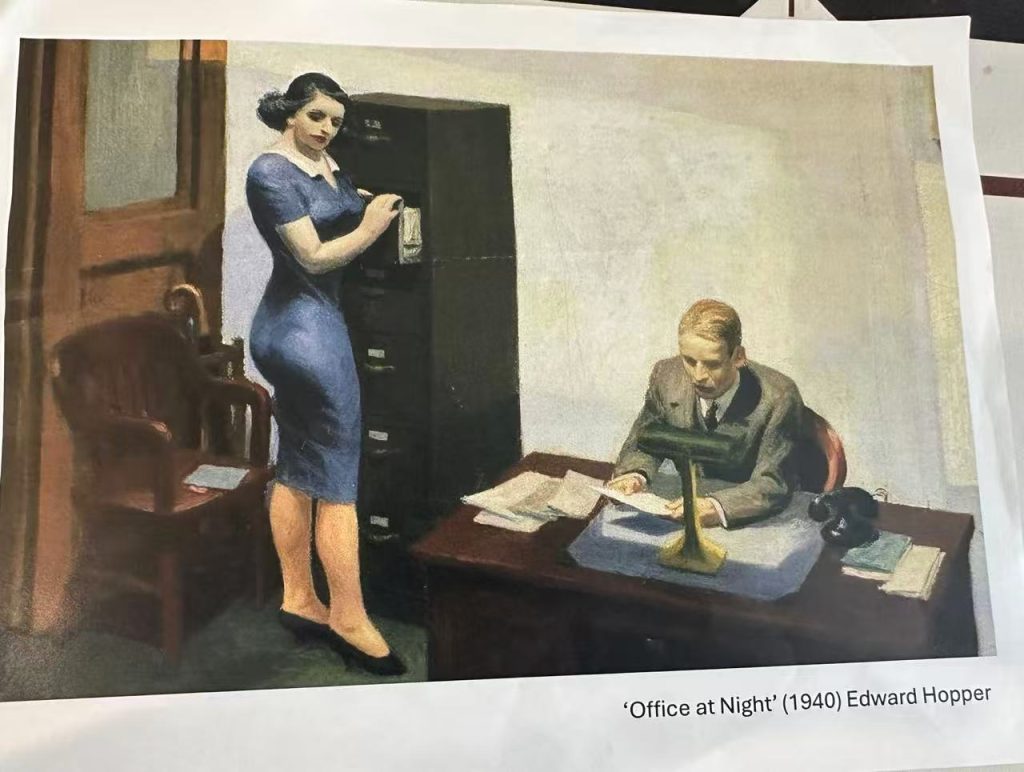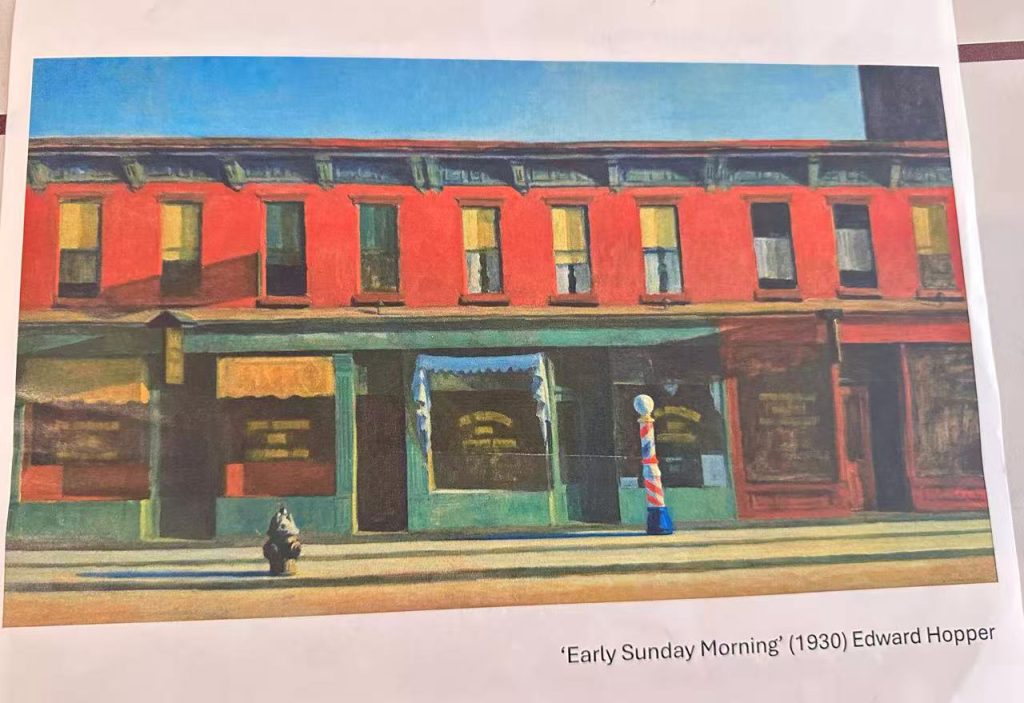Weaving Words: The Letter from Swift Current
Weaving Words is a creative writing workshop offered in partnership with the Saskatchewan Writers’ Guild. Over four sessions, clients came together to learn, share, and explore their literary creativity. In the August program, participants used old pictures as prompts, drawing on them to spark ideas and guide their writing. We are honoured to share the story written by Sophia, one of the program participants.

The Letter from Swift Current
One cold night in 1940, Mr. Edward sat alone in his study, the sound of the wind rattling the windows. In his trembling hands was a strange letter he had just found in his mailbox. The paper was brittle, the ink slightly faded, and it carried the faint scent of damp earth.
His secretary, Miss Carter, entered with the evening files. She stopped when she saw his pale face. “Mr. Edward? What happened?”
He held up the letter. “Look—it’s addressed to me. But… the postmark. Swift Current, Saskatchewan. And the date— August 15, 1930.”
“Swift Current?” Miss Carter frowned. “That’s a small town, a few hours by train from Saskatoon. But how can a letter from 1930 arrive in your mailbox tonight?”
Edward carefully opened the envelope. The handwriting was rushed, almost desperate:
“Mr. Edward, we urgently need your new breathing treatment device. Everyone in town has suddenly fallen ill with severe breathing problems. We are locked inside our homes and cannot go out. Please, help us.”
Miss Carter’s eyes widened. “Breathing treatment device? Isn’t that the one you launched in 1930?”
Edward nodded slowly. “Yes. My most advanced invention at the time. But this letter means… they need it now—even though it is ten years in the past.”
For a moment, the room was silent except for the storm outside. Then Edward rose to his feet. “I have to go to Swift Current. Tonight.”
Miss Carter hesitated, then sighed. “Then I’m coming with you. But you’ll have to explain, on the train, how we can help people who might not even be alive anymore.”

The Train Through Time
The station was nearly deserted when they arrived. The last train hissed in the cold night air, its lamps glowing faintly through the snow. They boarded quickly, the whistle blew, and the iron beast carried them westward into darkness.
Inside the dimly lit carriage, Edward unfolded the letter again. Miss Carter leaned closer. “Do you think this is some kind of… time rift?”
Edward’s eyes narrowed. “Machines are bridges, Miss Carter. They connect what once seemed impossible. Electricity, radio, medicine—they bend reality. Perhaps this device of mine bent more than lungs.”
The train rattled through the dark fields, but soon the lamps flickered. The view outside blurred—not farms and snow, but shadows of another world. For a moment, Edward saw children running in the streets of 1930, women coughing at their windows, men shouting for help.
Miss Carter clutched his arm. “Edward! Are we… going backward?”
The train screeched to a halt. The conductor stepped into their carriage—but his uniform was old-fashioned, faded. His voice echoed strangely. “Swift Current,” he announced. “Year… 1930.”
The Town of Silence
They stepped onto the platform. The air was heavy, damp with the smell of illness. The town was silent—no lights, no voices, only the echo of wind through boarded windows.
Edward clutched the breathing device—a polished metal box with tubes and valves. “This place feels like a graveyard,” Miss Carter whispered.
A boy staggered out of the shadows. His face was pale, his breath ragged. His eyes widened at Edward. “You came… you really came!” he gasped, before collapsing.
Edward rushed to fit the device over the boy’s mouth, pumping carefully. The boy’s chest rose, color returned to his cheeks. “It works,” he whispered weakly. “You saved me.” He pointed shakily. “They’re all waiting… in the church.”
Inside the church, dozens of townsfolk lay weak and gasping, their bodies frail, their voices hoarse. Edward worked tirelessly, moving from one to the next, attaching his device. Miss Carter helped, trembling but determined.
But as Edward treated them, something strange happened. The patients’ faces began to blur, like fading ink on old paper.
Miss Carter cried, “Edward—they’re disappearing!”
The boy smiled faintly. “We are shadows… trapped between years. Only your machine can free us.”
Edward froze. “Free you? Or erase you?”

The Door Between Years
The church trembled. Cracks split the walls, and through them Edward glimpsed swirling images of both 1940 and 1930—two times overlapping like reflections in broken glass. The letter in his pocket glowed, burning hot.
Miss Carter clung to him. “The letter brought us here. It’s not just a message—it’s a key.”
The boy’s voice echoed: “If you stay, we remain. If you leave, we vanish. But if you cross the door… you might change everything.”
Edward’s heart pounded. He thought of history, of lives lost, of the power in his hands. Slowly, he placed the breathing device on the church altar. The glow spread, filling the room like sunlight breaking through storm clouds.
The townsfolk stood, smiling peacefully, before dissolving into silver dust that drifted upward into the light. The boy whispered his last words: “Thank you… now we can breathe… forever.”
Then silence.
Edward and Miss Carter opened their eyes. They were back on the train, back in 1940. The letter lay on Edward’s lap— now blank. The machine was gone.
Miss Carter whispered, “Did we really go there?” Edward stared at the empty page, his voice low. “Some doors only open once. But sometimes, saving the past is the only way to breathe in the present.”
The whistle blew. Ahead, the first lights of Swift Current appeared—quiet, alive, untouched.



